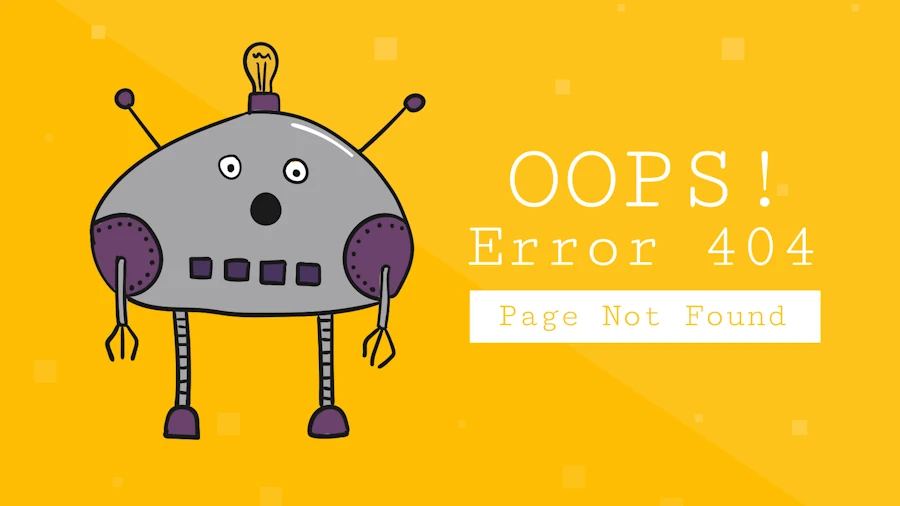Reading time: 10 minutes
Published: August 15 2023
Chari Harper
DIY OR OUTSOURCE Should Australian Small Businesses Outsource Website Design or Go DIY
Navigating the digital landscape can be a daunting task for small business owners. One of the most challenging decisions you'll face is whether to outsource your website design or build it yourself. This choice will impact your budget and how you manage your time and resources, and it could ultimately influence how your brand is perceived online.
This blog post explores the pros and cons of outsourcing your website design versus going the DIY route. We'll delve into the crucial factors you should consider when making this decision, including budget, time, skill levels, and the stage of your business. We'll also outline what you can expect when embarking on either path, providing a comprehensive guide to help you make an informed decision that best fits your business needs.
Whether you're a seasoned small business owner in Australia looking to revamp your online presence or just beginning to carve out your space on the web, this guide is here to light your path. Let's dive in!
What you need to consider:
Is your business full-time or part-time?
Whether your business is full-time or part-time can significantly impact your approach to building your website. Full-time business owners may have more resources to allocate towards professional web design services. At the same time, part-timers might prefer a DIY approach due to budget or time constraints. Consider the scope and scale of your operations when making this decision.
What is your budget?
Budget is one of the most crucial factors when deciding whether to outsource or build your website. Outsourcing often provides a more professional result, but it can be costly. On the other hand, while DIY might seem more budget-friendly initially, the learning curve and time investment can make it expensive in the long run.
How much time do you have?
Time is another critical factor in your decision-making process. Building a website from scratch can be time-consuming, especially if you're new to it. Outsourcing can free up your time for other crucial aspects of your business, but you'll still need to invest time in managing and communicating with the design team.
Do you have the necessary skills?
Assess your skill set honestly. Building a website can require knowledge of platforms, coding, design principles, SEO, and more. If these areas are not your strong suit, outsourcing to professionals can ensure your website is up to standard and able to compete effectively online. If you choose to DIY your website, it may benefit to look at platforms that provide templates and no coding.
WebWave AI Writer
Generate your website copy with just one click.
Do you know anybody who may have the skills to build it for you?
Networking can be a great asset. If you have a friend, colleague, or contact who can help you build your website at a lower cost or even free of charge, this could be a good middle ground. However, remember to clarify expectations and timelines to prevent any misunderstandings.
How new or established is your business?
The stage of your business also matters. If you're a start-up, every dollar counts, and you might choose to DIY. On the contrary, if your business is more established and can afford it, outsourcing can bring in a professional touch that aligns with your business's maturity level.
Beyond the build
Remember, a website isn't a "set and forget" task. It requires regular updates, maintenance, and optimisation. Whether you outsource or DIY, you'll need to consider who will handle these tasks. They are vital for the functionality and security of your site and, ultimately, your brand's reputation.
Hosting budget
Lastly, don't forget about hosting costs. Even if you build the website yourself, you'll need a hosting service to get it online. Prices vary widely, depending on the service level, so make sure to factor this into your budget. Consider the benefits of various hosting services and the potential impact on your website's performance and security.
Will you want to make changes yourself?
This is an important factor in your decision-making process. If you plan to regularly update or modify your website's structure, features or design, you need to consider how comfortable you are with making these changes yourself. If you outsource, you may incur additional costs for each change. On the other hand, a DIY approach allows you the flexibility to tweak as needed, provided you have the requisite skills.
Content Updating
Content is king in the digital world. Fresh, updated content is a key factor for keeping your website relevant and favourable in the eyes of search engines. If you plan to frequently add blogs, change product information, or update company news, you'll need to decide who will be responsible for these tasks.
Outsourcing your content creation can provide high-quality, SEO-optimised material but will also increase your budget. Doing it yourself can save money but will require a time investment and a good grasp of content marketing strategies.
Budget for Ongoing Upkeep
Lastly, budgeting for ongoing upkeep is vital. Websites are not a one-time investment. They need regular maintenance to keep them running smoothly and securely, which might include tasks like software updates, bug fixes, or server upgrades. These can be handled by the web designer if you choose to outsource but at an additional cost.
If you're considering the DIY route, you'll need to factor in the time it will take to learn and perform these tasks yourself. In either case, remember to include these costs in your overall budget.
Option 1 - Choose to Outsource
Depending on the content and features, you’ll need a budget of $1000 to $3000 for a basic website.
Outsourcing your website design will require a budget. Typically, for a basic 5-page website, you can expect to pay anywhere from $1000 to $3000. This range may increase based on the complexity of your site, the level of customisation, the intricacy of the design, and the specific features you want to include.
Remember, though, that while this upfront cost may seem high, the investment can be well worth it if it results in a high-quality, professional website that effectively represents your business.
Finding a trustworthy designer
Choosing a web designer is like choosing a partner for your business - finding someone reliable, experienced, and trustworthy is essential. Take the time to research and interview potential designers or agencies. Look at their portfolio, ask for references, and read reviews. It's important to ensure that their style aligns with your vision and that they have a proven track record of delivering quality work on time.
Working up a design brief to get cost estimates
Before you can get an accurate cost estimate, you'll need to create a comprehensive design brief. This document should outline your goals for the website, the target audience, the required features, any preferred designs or colours, and the expected timeline. The more detailed your brief, the better the designer will understand your vision and the more accurately they can estimate the cost.
Resolving issues
When outsourcing, it's crucial to have a contingency plan when things don't go as planned. This might mean a website bug, a missed deadline, or a design that doesn't meet your expectations. Discuss these potential issues with your designer upfront. Ensure there's a process for addressing problems and that their terms of service include revisions or remedies for when things go wrong. Clear communication from the start can help prevent misunderstandings and ensure you're satisfied with the end result.
Option 2 - DIY your Website
You will need the following basic skills (depending on the platform you choose)
Choosing to design your website yourself means you will need certain skills. The specifics depend on the platform you choose. If you select a drag and drop website builder, like WebWave, Weebly or Squarespace you'll need to take the time to learn and understand how to use their interface and tools. If you're using a more complex system you may need knowledge of HTML, CSS, and PHP. Beyond that, having a basic understanding of design principles, SEO best practices, and content strategy will also be crucial to create a website that's not only visually pleasing but effective in achieving your business goals.
How good is your IT knowledge?
Connecting the website to your domain
IT knowledge is a key part of DIY website design. You'll need to know how to connect your website to your chosen domain name, a process known as domain mapping. This involves adjusting DNS settings and possibly working with your domain registrar or hosting service. If these terms already seem daunting, you might want to consider enhancing your IT skills or seeking assistance before taking on a DIY website project.
What happens when something goes wrong?
Just like when outsourcing, things can also go wrong with DIY. A feature may not work as expected, the site could go down, or a design element may not look right. The difference with DIY is that the responsibility to fix these issues falls entirely on you. Consider if you have the skills, time, and patience to troubleshoot problems or if this could end up causing more stress and distraction from your core business tasks. You should also have a backup plan, like access to a web professional you can call on for help if things get too complicated.
In conclusion, the choice between outsourcing and DIY for your business website design is a crucial one, laden with many considerations. Each path has its own merits and challenges. The key is to choose a website strategy that aligns most closely with your business needs, goals, resources, and skillset.
WebWave: A website builder that offers the best of both worlds
WebWave is a comprehensive web design platform that provides solutions for both pathways. Its unique blend of options means you can choose the approach that best fits your needs, with the flexibility to change your approach down the track if needed.
If you do decide to outsource, you can hire a WebWave Expert. A list of Australian based WebWave experts can be found on their website. These designers have a thorough understanding of the platform and can deliver a professionally designed website that caters to your specific requirements.
For those considering the DIY route, WebWave stands out with its fully featured drag and drop editor backed up with local support in Australia. If you're ever in a bind or just need some guidance, you can jump on a call with the Aussie support team for assistance. WebWave also offers basic tutorials for getting started and a host of self-help resources on their YouTube channel, making the process as seamless as possible.
No matter which path you choose, remember that building a website is a journey. With platforms like WebWave, and the right preparation and support, you can navigate this journey successfully. Ultimately, the goal is to create a web presence that showcases your Aussie business, engages your audience, and contributes to your overall growth. Here's to your digital success!


Other articles.
WebWave website builder is your AI-powered solution for building an online presence. Create your website in 3 minutes, add an online store or a blog, and grow your business.
We created this website with WebWave.
Follow us on social media



